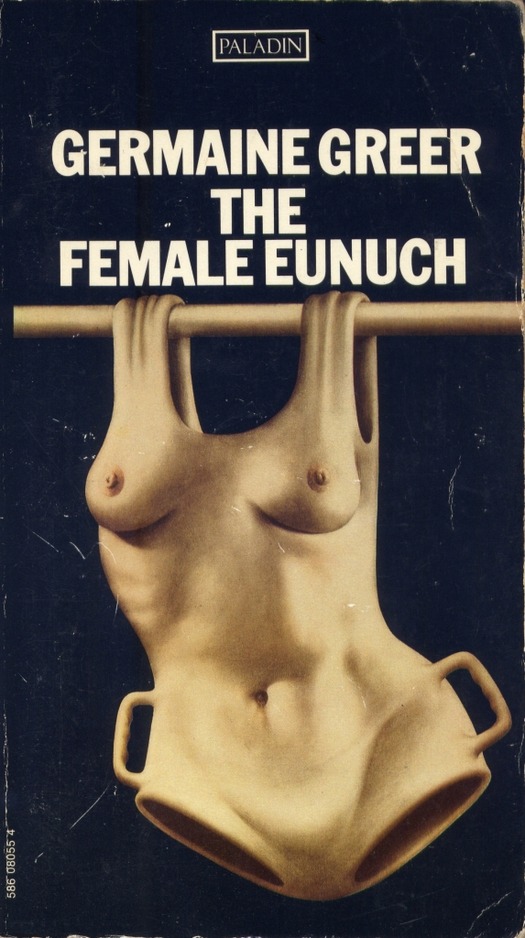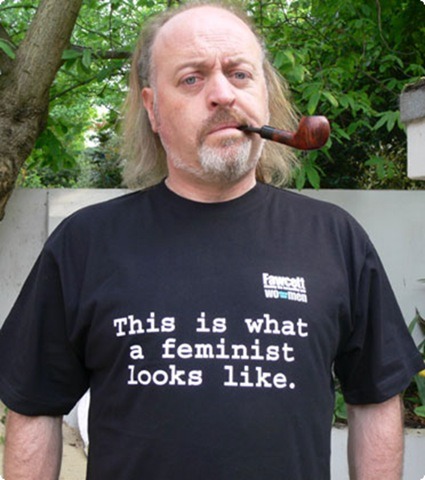 “What is
feminism? Simply the belief that women should be as free as men, however nuts,
dim, deluded, badly dressed, fat, receding, lazy and smug they might be. Are
you a feminist? Hahaha. Of course you are.”
“What is
feminism? Simply the belief that women should be as free as men, however nuts,
dim, deluded, badly dressed, fat, receding, lazy and smug they might be. Are
you a feminist? Hahaha. Of course you are.” How to be a Woman, Caitlin Moran's 2011 book, quickly became one of my favourite books of all time. Moran's take on modern-day feminism and her quirky and hilarious writing style had me gripped from the first page and I loved it.
I had always considered myself ‘a feminist’ but in recent times I had lost focus of just what that term meant. It took reading this book at the grand old age of 32 for me to clarify precisely what it meant. Well, what it meant for me, at least.
Having been raised by liberal parents who were very keen to instill in me a sense of equality no matter who a person was, I had grown up with a strong sense of what feminism meant. Mum had her own career and a string of commitments and interests above and beyond that of homemaker and I had always been encouraged to believe that I could become anything I wished to. I was lucky enough to be surrounded by strong female role models. I had 4 ‘proper’ aunties (and a string of adopted ones), all independent and brilliant in their own right. I had fearless, adventurous Brownie and Guide leaders and inspirational schoolteachers who developed my interest in art, drama, literature and science. Alongside this, I knew women of all ages who were running hostels for homeless women, becoming missionaries, being ballerinas, being painters and doing other amazing, life-changing things all around me. School gave me a sound understanding of the history of feminism and I soon came to appreciate the very real sacrifices others had made for me, as a girl of the 80’s and a young woman of the 90’s.

In practice, however, as I moved on to independence and out of home, it became less clear as to what the feminist movement in the 2000’s actually was and precisely where I fitted within it. I read The Female Eunuch and it spoke to me in many ways, but it did seem a product of its time rather than something written for me. In a post-Spice Girls ‘girl-power’ world, feminism was somewhat lost. The old jokes about ‘man-hating lesbians in sensible shoes’ still held strong, but now a new generation of girls believed that adopting one of the pre-formed moulds provided by five pop puppets was the key to gender equality. Although I appreciated that this clearly wasn’t the answer, I found myself struggling to define what feminism really was and how it applied to my life. I found myself asking ‘Am I really a feminist?’ I didn’t hate men – I thought many of them were brilliant! Wearing pretty frocks and make-up when I wanted to made me feel good – was I betraying the sisterhood? What exactly was the sisterhood, anyway? Many of the most destructive and hurtful relationships I had experienced in my childhood had been with young female friends – where was the comradeship there?
In time I developed my own, quiet, subtle form of what I thought of as feminism. I didn’t give it a capital F, I didn’t scream it from the picket lines. But I worked. I worked hard to earn the qualifications I needed to stand toe-to-toe with male counterparts in a competitive industry. I deliberately pushed myself to take on difficult jobs such as managing a band and having to argue for money at the end of the night with half-cut landlords. I took a lot of shit from certain men and it took a while to really find my voice again after this, but, eventually, I found true independence and the ability to decide what I wanted to do and how I wanted to do it. But was I a Feminist? I still didn’t know. It turns out I wasn’t alone. Caitlin Moran has one quick answer for all women out there wondering the same thing:
“So here is the quick way of working out if you're a feminist.
Put your hand in your pants.
a) Do you have a vagina? and
b) Do you want to be in charge of it?
If you said 'yes' to both, then congratulations! You're a feminist.”
 |
| I’d like to add that you don’t need a vagina to be a feminist, as demonstrated excellently by Mr. Bill Bailey, here. |
Moran manages to apply the core feminist message to modern life and in doing so, highlight how important it remains to modern women. Her witty, considered and sometimes moving commentary covers a range of issues, from pubic hair to the abortion debate, via the importance of public libraries. Her discussion of the nicknames given to female genitalia along with the matter-of-fact, even flippant, discussions of issues surrounding motherhood are refreshing and thought-provoking and, perhaps most importantly, accessible.
She isn’t popular with some and, as seems so common amongst any group who have self-applied a label, many within Feminism have decided she isn’t saying the ‘right’ things or that she is watering down a potent political message. However, Moran makes the point that you don’t need an MA in Gender Studies to understand the importance of feminism – and I can’t help but think that this may bite for those who’ve dedicated their life to precisely this. There seems to be endless debates around what someone calling themselves a Feminist should stand for and the middle-class educated elite often appear to be shouting loudest about this.
It seems sad to me that a movement based on securing freedom of choice for women seems determined to then set a very rigid code of what they should care about, comment on and believe. I may not necessarily agree with everything Moran says, but I will defend to the death her right to say and do what she wishes as that, surely, is at the point at the very heart of the movement.
Feminism has always been relevant. It has always been important. Maybe now, thanks to people like Moran and sites like Jezabel and The Vagenda more young women will come to investigate what may have seemed like such a distant and inaccessible movement and realise that feminism has something vital and useful to offer them too.
Great post for C. I don't know if I am a 'card carrying' feminist, but was raised to believe that women can do anything men can do. Since my Dad was ill, a lot of his life, my Mom had to step up to the plate and take on a larger role. A big deal for her time. I'm 61.
ReplyDeleteBut it still annoys me that men get paid more for doing some, of the same jobs as women. So hopefully I have instilled those feminist qualities in my daughters and they can take up the torch and fight for themselves.
Kathy at Oak Lawn Images
Thanks, Kathy. Great to hear that the torch is being passed on to the next generation! I love your photography - what a beautiful part of the world you live in :0)
ReplyDeleteThis sounds like a good read. I will add it to my list!
ReplyDeleteLove it! Hi there! This is my first visit to your blog and I enjoyed it. I'm bookmarking blogs I plan to return to and yours is one. Anyone obsessed with books, vaginas or feminists is my sistah! Please visit us at http://citymusecountrymuse2012.blogspot.com/ and, if you like what you see, sign up to become a member.
ReplyDeleteWhen I was at university we had a lecture which revealed that most of the male students could tell you what feminists were and what they believed, while the majority of female students struggled, furthermore they saw the word 'feminist' as synonymous with 'lesbian' and didn't necessarily want to be associated with their awkward understanding of it.
ReplyDeleteIt was depressing.
Dave
Dave Wrote This